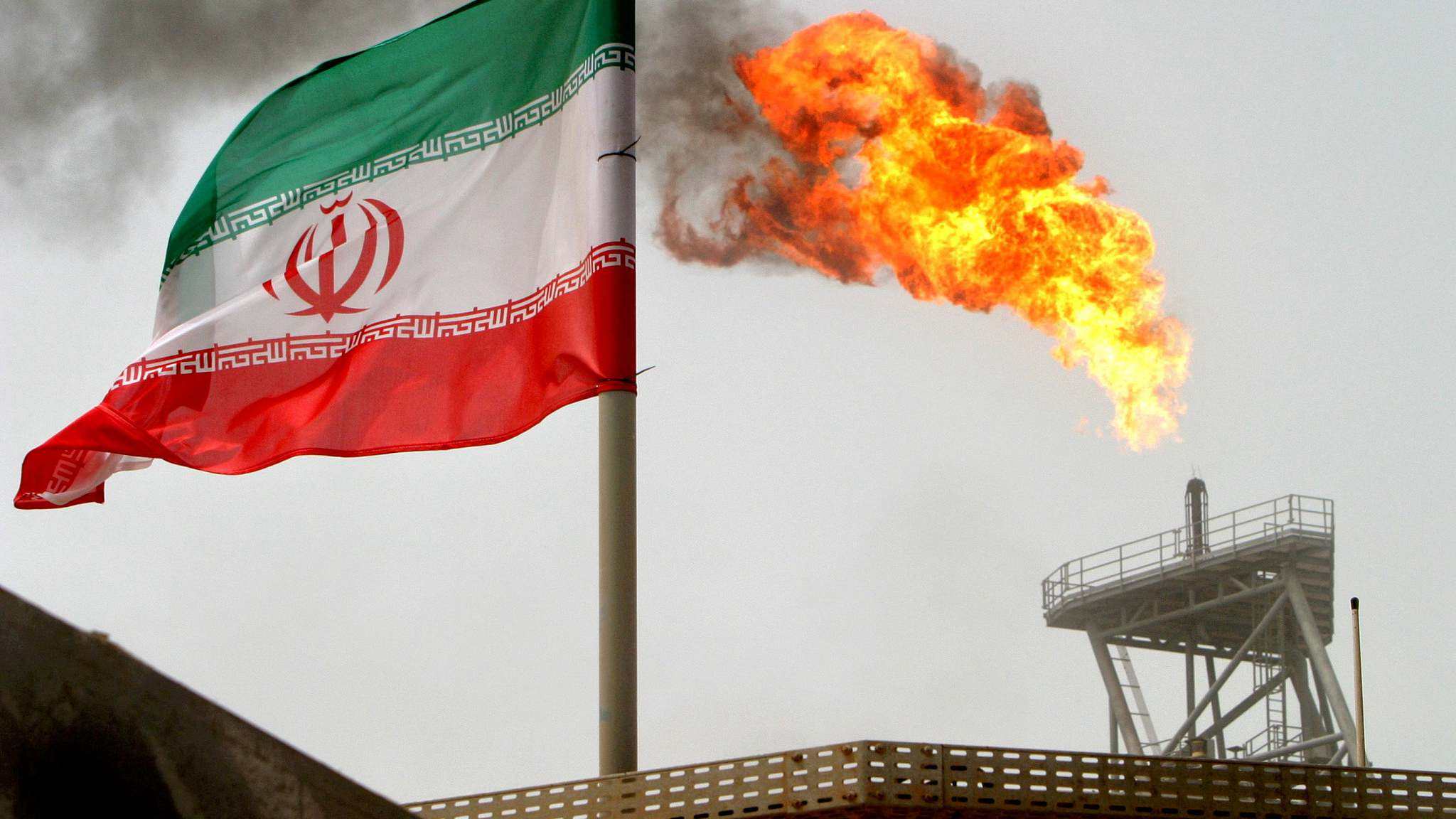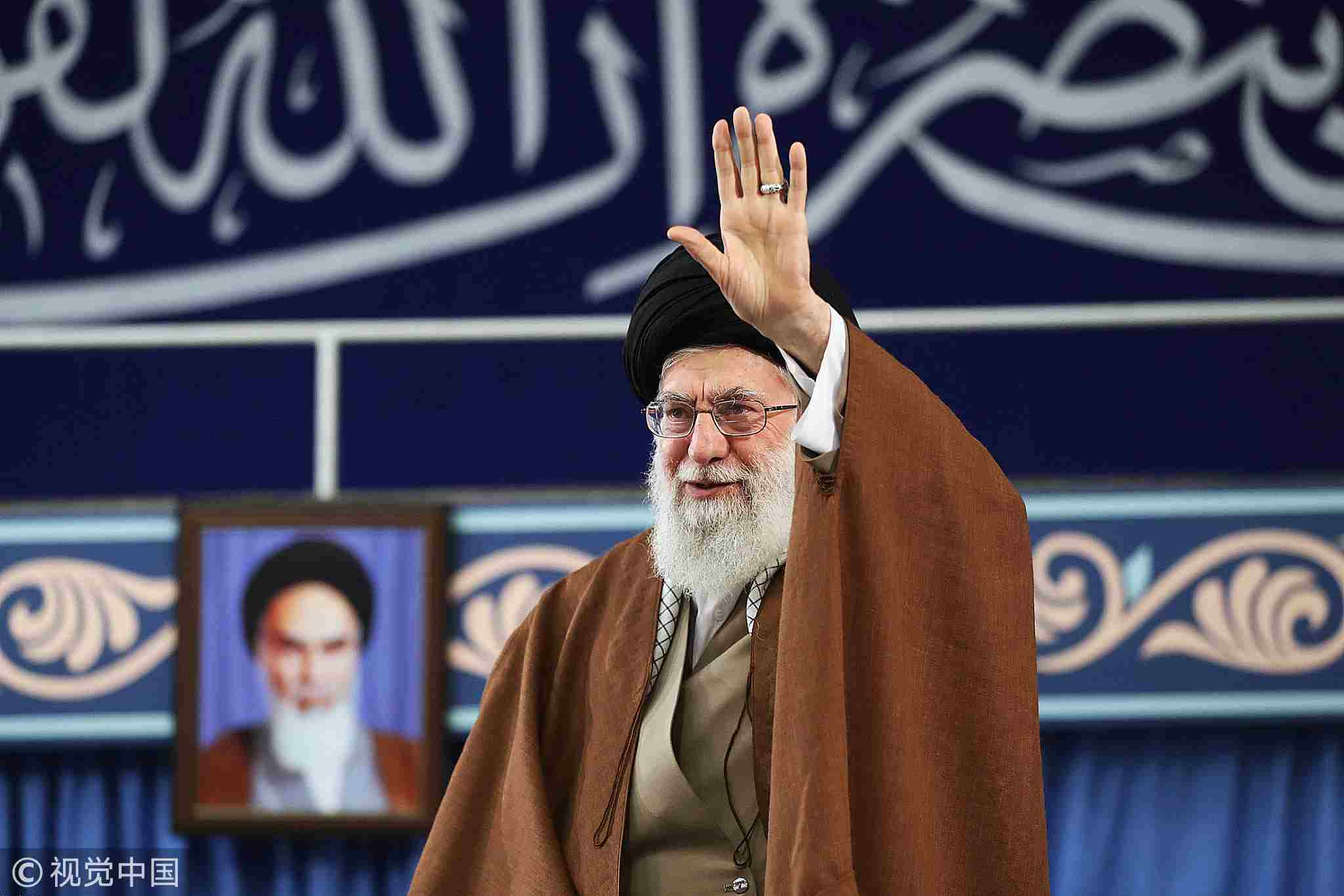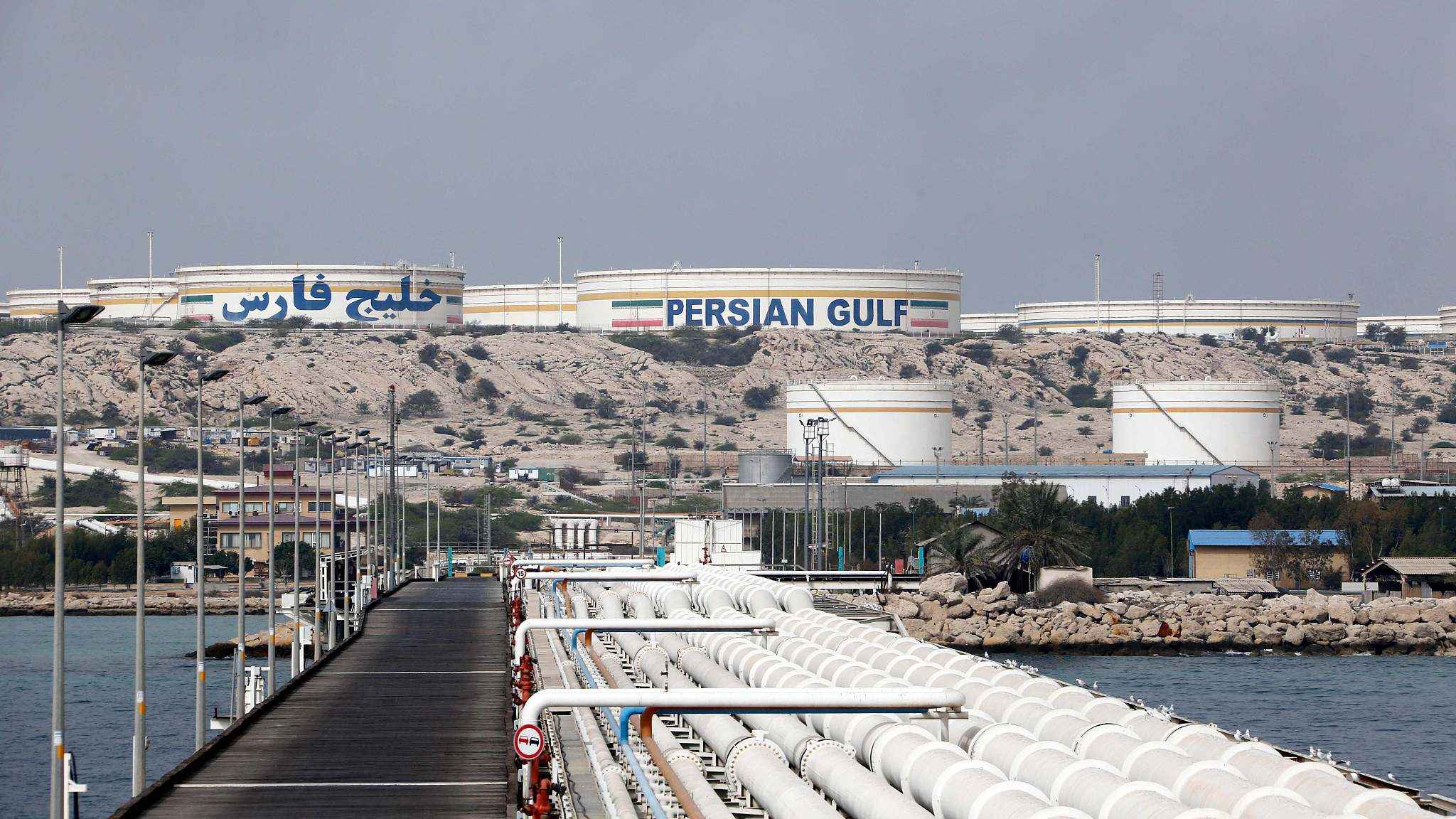
Opinion
14:47, 03-May-2019
Tighten Iranian oil sanctions puts severe impact on world's oil output and economy
Bobby Naderi

Editor's note: Bobby Naderi is a journalist, current affairs commentator, documentary filmmaker and member of the Writers Guild of Great Britain. The article reflects the author's opinion, and not necessarily the views of CGTN.
Consider this a small reminder that the Middle Eastern country's economy has been suffering for years from illegal sanctions unilaterally imposed by the United States. This includes a plummeting value of the Iranian rial, rising living costs, and falling oil exports. The last thing Iran needs is sliding into a deep recession. And that's exactly what the U.S. oil ban is intended to do.
It won't merely damage Iran's economy. Perhaps you won't be surprised to learn that if it works, it will also hurt many oil importing countries. This is because no matter how hard they might try, other oil-producing countries in the region are not ready to replace Iran's oil in the market far and wide.

Iran's supreme leader Ayatollah Ali Khamenei at a meeting to mark the 39th anniversary of the U.S. Embassy takeover in Tehran, Iran, November 3, 2018. /VCG Photo
Iran's supreme leader Ayatollah Ali Khamenei at a meeting to mark the 39th anniversary of the U.S. Embassy takeover in Tehran, Iran, November 3, 2018. /VCG Photo
Here is where the economic basics are being ignored: U.S. President Donald Trump claims his administration has reached an understanding with Saudi Arabia and the United Arab Emirates "to ensure oil markets are adequately supplied." This is while Saudi Arabia's Energy Minister Khalid Al-Falih has said his country is not in a hurry to increase global oil supply to make up for a loss of Iranian supplies.
Turkey's Foreign Minister Mevlut Cavusoglu has said Ankara needs "an extension of the six-month exemption it had from Washington, maintaining that it is not easy to replace Iranian oil."
Qatar's Foreign Minister Sheikh Mohammed bin Abdulrahman al-Thani has also said, "The sanctions should not be extended because they have an adverse impact on countries benefiting from Iranian oil."
Al-Thani, whose country hosts a U.S. air base in the Persian Gulf, has urged Tehran and Washington, instead, to resolve their disputes through dialogue - with Doha acting as a mediator.
Next up comes the legality and morality of Trump's oil ban, which is also being ignored - at a time when demand for oil is high, and many importers admittedly cannot replace oil with something else.
As is often the case, Washington's use of sanctions to choke off the energy exports of its foe goes against the fundamental norms of international law. Trump's plan is not to renegotiate the 2015 nuclear deal, but to economically starve Iran into submission, which is why it has no international consent and why Tehran is defiant.
Oil Minister Bijan Zanganeh says the Trump administration's plan to bring Iranian crude exports to zero is an illusion. Iran President Hassan Rouhani says Tehran will sell its oil and the U.S. power is not as much as they say. Foreign Minister Mohammad Javad Zarif also says, "We will continue to find buyers for our oil, and we will continue to use the Strait of Hormuz as a safe transit passage for the sale of our oil. If the U.S. takes the crazy measure of trying to prevent us from doing that, then it should be prepared for the consequences."

An oil facility in Khark Island, Iran. /VCG Photo
An oil facility in Khark Island, Iran. /VCG Photo
That said, the Trump administration is still determined to use the oil weapon against one of the world's leading producers. This would have severe impacts on the Iranian economy, as well as the world's oil output and economy. This translates into the fact that in the pursuit of Trump's "America First" policy anything goes, even global energy security, driving prices high and threatening the global economy.
As with any application of force, however, the use of oil weapon will still fail. This is because the U.S. and its European allies remain dependent on oil imports and will suffer if other Middle Eastern countries were unable to increase exports. Seeing Washington's growing reliance on aggressive oil tactics to impose its will, Iran will find new ways to sell its oil, too.
On the other hand, the ban will not only drive up the risk of conflict in the Persian Gulf but will make it harder for Western governments to focus on long-term energy challenges, such as finding alternative fuels.
In any case, Iran has been at the game a lot longer than Trump and can bypass sanctions in far bigger ways. The hope is that the official class in Washington will appreciate that the only way to resolve its differences with Tehran is through dialogue and diplomacy. President Trump should invest in what actually works and not go for an unpopular sanctions regime that doesn't work at all.
(If you want to contribute and have specific expertise, please contact us at opinions@cgtn.com.)

SITEMAP
Copyright © 2018 CGTN. Beijing ICP prepared NO.16065310-3
Copyright © 2018 CGTN. Beijing ICP prepared NO.16065310-3